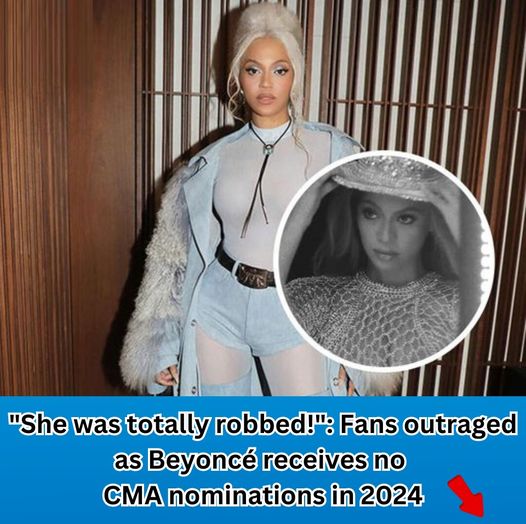The 2024 Country Music Awards (CMA) saw a notable absence of recognition for Beyoncé, despite her significant success in the country music genre. Her song Texas Hold ’em and the album Cowboy Carter earned considerable acclaim, especially among her fanbase, the Beyhive. Beyoncé’s country single stayed at the top of the Billboard Hot Country Songs chart for ten consecutive weeks, yet she received no CMA nominations.
Fans were particularly upset given the criticism she faced after her 2016 CMA performance of Daddy Lessons with The Chicks. Many felt her exclusion from the awards was a snub, with some attributing it to resistance within the country music community toward non-traditional country artists like Beyoncé. As one fan said, “Her influence transcends genres, but the gatekeepers aren’t ready for that.” Despite this, Beyoncé’s pioneering contributions to country music—being the first black woman to top the country charts as a solo artist—remain undeniable.
Her album was reportedly inspired by feelings of alienation after her 2016 CMA experience. In her own words, “[The album was] born out of an experience that I had years ago where I did not feel welcomed… and it was very clear that I wasn’t.”
The Beyhive is eagerly awaiting what 2025 holds for Beyoncé in country music, but her snub this year continues to raise questions about inclusivity and diversity within the genre.
The Snub and Controversy
Beyoncé’s omission from the CMA nominations surprised many, especially after Cowboy Carter’s success in both mainstream and country music circles. Her fans expected her to make history by being nominated for Album of the Year. The silence from CMA towards Beyoncé’s contributions sparked conversations about how inclusive the genre really is.
Many commentators noted that while country music has been evolving, it’s still dominated by traditional figures. The genre often seems reluctant to embrace artists who don’t fit its stereotypical image, especially when those artists come from different musical backgrounds. Beyoncé’s case exemplifies this divide, as her undeniable success was seemingly overlooked.
Her song Texas Hold ’em not only topped the Billboard Hot Country Songs for weeks, but it also resonated with a broad audience, blending Beyoncé’s musical versatility with country influences. Despite the controversy, it’s clear that Beyoncé’s contributions to the genre are undeniable.
Fan Reactions and Support
The Beyhive, known for its unwavering support of the superstar, took to social media platforms to voice their frustration. Many believed that Beyoncé was purposefully excluded from the awards, with some even labeling it an intentional act of gatekeeping within the country music industry. One fan tweeted, “Beyoncé deserves the recognition for breaking boundaries. They just can’t handle it.”
Other fans pointed out that Beyoncé’s exclusion mirrors broader conversations about race and representation in country music. Despite efforts to diversify the genre, the industry often remains slow to adapt to non-traditional and non-white artists. Beyoncé, being the first black woman to top the country charts, represents a significant moment in the genre’s history—one that, according to her supporters, should have been acknowledged at the CMA.
Reflecting on the 2016 CMA Performance
Beyoncé’s past experience with country music at the 2016 CMA played a crucial role in shaping her latest country album. The performance of Daddy Lessons with The Chicks was met with criticism, and some country music fans felt that her inclusion was inappropriate. This backlash seemed to have lingered, influencing how her work in the genre was received this year.
Beyoncé herself addressed the issue, stating that her album was inspired by a feeling of exclusion. “It was very clear that I wasn’t welcomed,” she reflected, highlighting how her entry into country music was met with resistance.
This history of resistance, coupled with her CMA snub, raises important questions about the boundaries the industry places around the genre. While Beyoncé may not fit the mold of a traditional country artist, her influence and success in the space challenge the notion of what country music can be.
Looking Ahead
While the 2024 CMAs may have passed without acknowledging Beyoncé’s contributions, her fans and supporters remain hopeful for what the future holds. As the conversation around inclusivity in country music grows, the pressure for the genre to evolve and embrace artists like Beyoncé will likely increase.
Her success in crossing over into country music highlights the fluidity of genres in today’s musical landscape, and it’s clear that Beyoncé has more to offer, whether or not she’s recognized by industry gatekeepers. The question remains: Will country music be ready to accept a broader definition of what it means to be a country artist?

